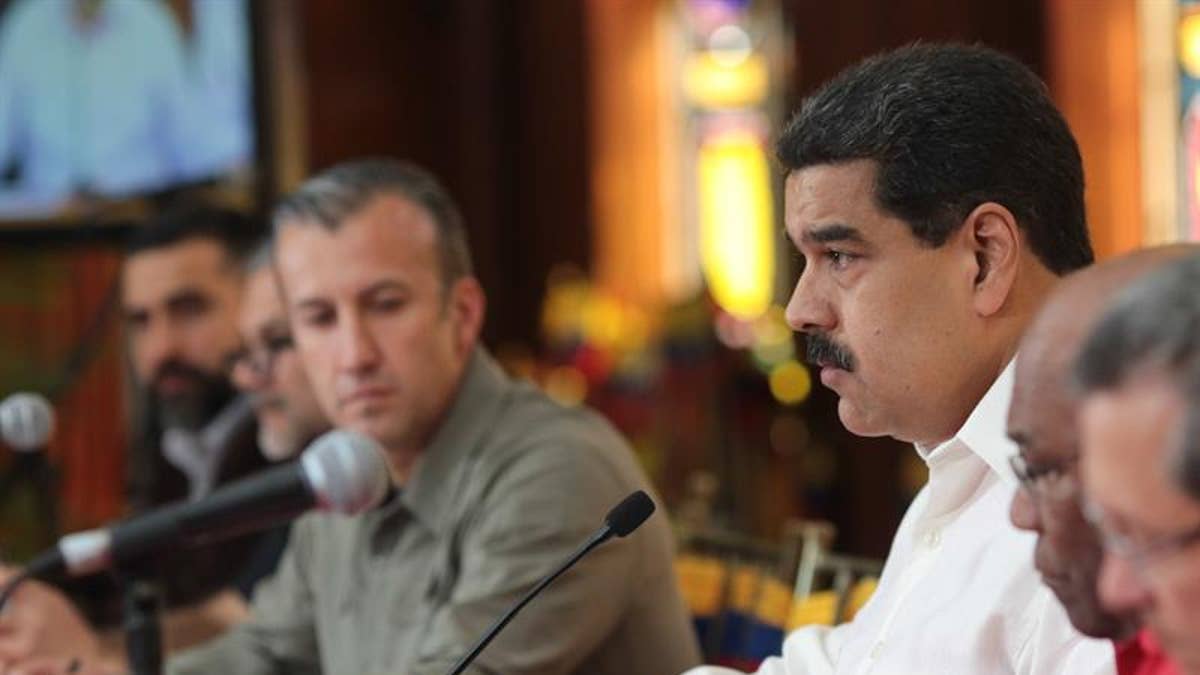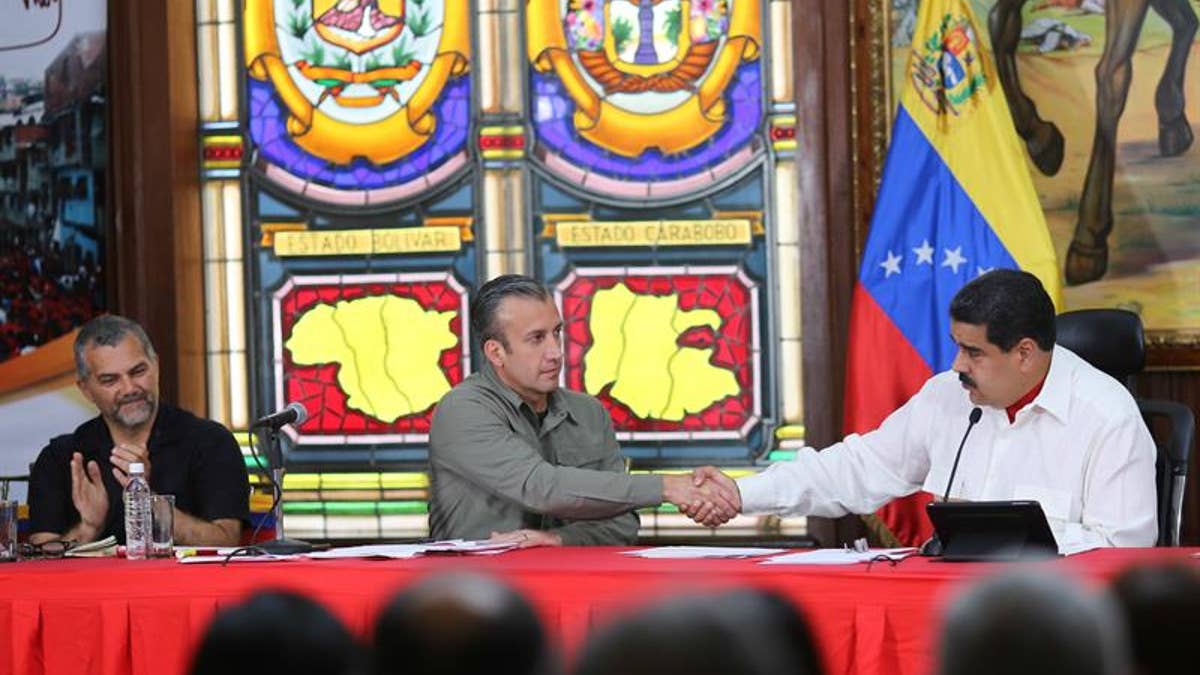
Venezuela's President Nicolas Maduro (R) with Vice President Tareck El Aissami during a press conference in Caracas, Venezuela, Feb. 14, 2017. (EFE/Venezuela's presidency)
CARACAS, Venezuela – The drug trafficking allegations made by the U.S. against Venezuela’s vice president and an alleged Miami-based associate are the toughest test to Chavismo in its 18 years in power, analysts here say.
It also signals a hardening U.S. stance toward President Nicolas Maduro's socialist government — the Obama administration was always careful not to call for Maduro's removal, choosing instead to support a Vatican-sponsored dialogue.
But while Maduro and the entire Chavista leadership were busy denying the allegations, calling the resulting sanctions “an act of aggression,” 24 hours after the announcement ordinary Venezuelans seemed apathetic and hardly surprised with the news out of Washington.

Venezuela's President Nicolas Maduro (R) shakes hands with Vice President Tareck El Aissami during a press conference in Caracas, Feb. 14, 2017. (EFE/Venezuela's presidency)
VENEZUELANS LEAD IN US ASYLUM REQUESTS AS CRISIS DEEPENS
"The United States has sanctioned several people, other governments condemn the government, the American States Organization as well, but nothing happens here,” said Jose Blanco, a clerk at a Caracas hardware store.
“This will only change if an election is ever allowed.”
Similarly, 70-year-old housewife Ivonne Alfonzo told Fox News she was barely surprised with the allegations that the country’s second-in-command is involved in an international drug trafficking ring.
“Nothing ever happens in the end, they remain in their posts and that's it. This doesn’t help," she said.
But some political analysts are perceiving the sanctions, which freeze all of El Aissami’s and his alleged front man Samark Lopez’s assets in the U.S., as a strong blow to the Chavista power structure.
VENEZUELAN PRESIDENT SAYS HE WANTS CNN OUT OF THE COUNTRY
According to political scientist Luis Salamanca, it will test the party’s real level of cohesion and could unleash an internal struggle.
"The career of El Aissami toward a possible presidential candidacy is eclipsed,” he said. “I don’t think it's enough for him to carry the flags of anti-imperialism, because there seems to be solid evidence that could be used in a judicial action.”
The analyst also pointed out to the fact that President Maduro didn’t directly attack President Trump for the sanctions, as he did when seven top government officials were sanctioned in a similar way two years ago. This time Maduro blamed it on the “Venezuelan extreme right” and to CNN network, which he said want to antagonize him with the new U.S. president.
“He doesn’t want a direct confrontation because he knows that Trump will react strongly,” Salamanca said.
In remarks carried on state television Tuesday, President Maduro said he hoped the new U.S. administration would not go down "the same path of defeat and failure" as the previous two U.S. presidential administrations in relations with Venezuela.
The two countries have not exchanged ambassadors since 2010.
El Aissami, 42, has been the target of U.S. law enforcement investigations for years, stemming from his days as interior minister when dozens of fraudulent Venezuelan passports ended up in the hands of people from the Middle East, including alleged members of Hezbollah.
El Aissami also worked with prominent drug traffickers in Mexico and Colombia to oversee multiple U.S.-bound cocaine shipments from Venezuela, according to the allegations.
The action Monday made no mention of any ties to Hezbollah.
The AP contributed to this report.
